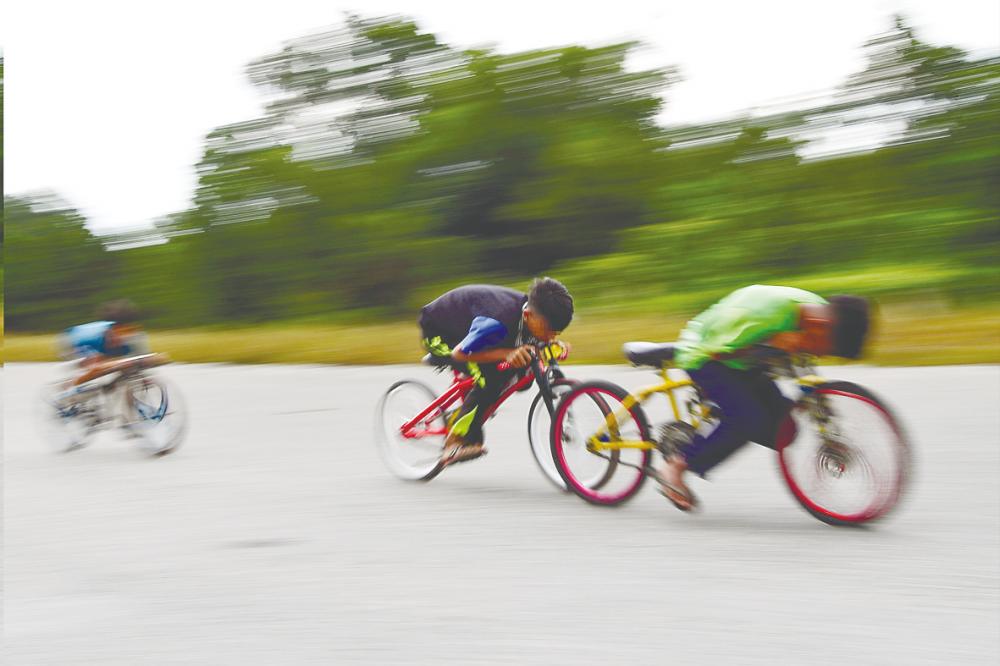PETALING JAYA: Basikal lajak or illegally modified bicycles used for dangerous stunts and racing remains a serious public safety issue with their continued presence on public roads, said Malaysian Institute of Road Safety Research chairman Prof Dr Wong Shaw Voon.
He said the issue is still critical as most riders are young people engaging in dangerous activities that pose risks to themselves and other road users.
“Basikal lajak activities are very dangerous. While they may be compared to extreme sports, the key difference is that extreme sports take place in controlled environments, while these activities occur on public roads, which are meant for transport, not racing.”
Wong highlighted the tragic 2017 incident in Johor Bahru where a crash involving teenagers riding modified bicycles resulted in eight deaths and eight others injured.
He said although many of these activities occur during the day, they are especially alarming at night when the risks are even higher.
“While many motorists avoid driving late at night, some, like factory workers or those with demanding schedules, have no choice but to travel during late hours. With distractions like basikal lajak on the roads, crashes are almost inevitable.
“Public roads are not designed for such activities, and the consequences of using them irresponsibly can be devastating,” he said, emphasising the need for collective efforts from the authorities, public and local communities to tackle the root causes of basikal lajak activities.
He said allowing children to roam the streets at midnight and engaging in dangerous activities reflects parental failure, while some are not concerned about other people’s children.
However, Wong said crashes can affect anyone, including innocent bystanders, and they could lead to tragedies.
He warned that failing to address such issues could have far-reaching consequences on youths who disregard the law, as they could contribute to larger societal problems..
“When they are older, these youths might turn to riding motorcycles and becoming a mat rempit.
“This would worsen the situation, as they might develop a lasting tendency to disregard the law.
“While some of them might change for the better, many will seek the same thrills and carry the habit into adulthood.”
Universiti Putra Malaysia Road Safety Research Centre head Assoc Prof Dr Law Teik Hwa said basikal lajak is a societal problem due to its “dangerous nature being normalised by the public”, especially on social media.
“Groups promoting modified bicycles on social media often glamorise the risks, encouraging young people to join in. Shops selling and modifying these bicycles worsen the trend.
“To address the matter, social media companies should collaborate to remove such groups, and enforce stricter content policies. Shops should also be regulated with rules against illegal modifications and be held accountable.”
Law said the issue stems from families enabling or failing to stop their children from participating due to cultural norms or lack of awareness about the risks. In some communities, the activity is seen as harmless fun, and parents may neglect to supervise their children.
Section 33 of the Child Act 2001 allows legal action against parents who fail to supervise their children, with penalties of up to RM20,000, five years’ imprisonment, or both.
“To tackle this problem, it’s essential to carry out parental education campaigns that emphasise the dangers of modified bicycles, using real-life examples for greater impact.
“A combined approach of enforcement, education, and community involvement is essential to stop the basikal lajak menace.”









